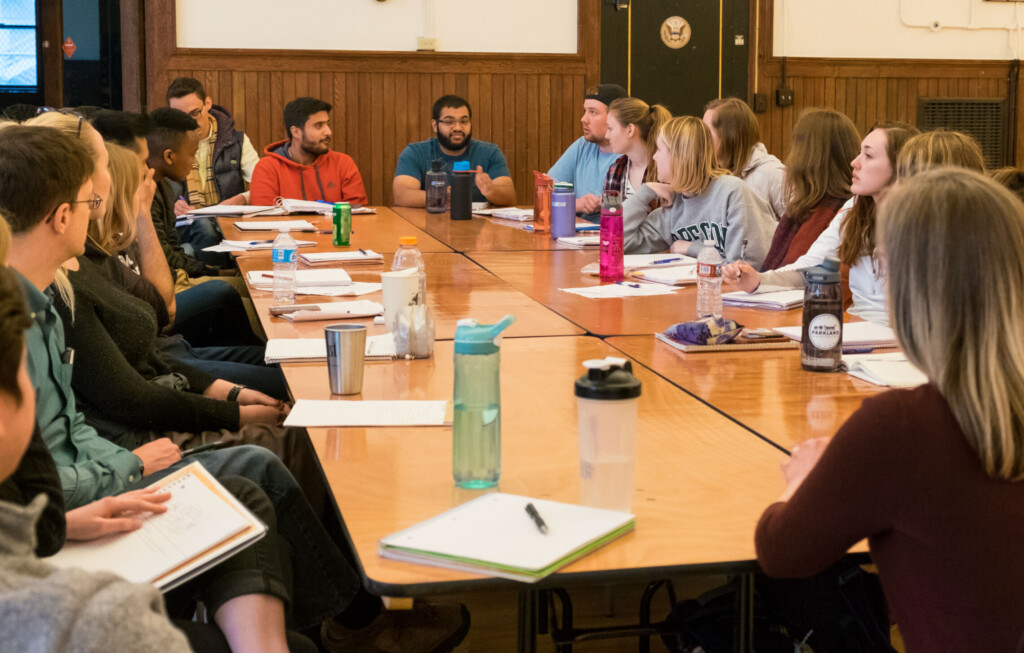Being a Scholar-Teacher and a Teacher-Scholar
By Erin McKenna
Originally Published in 2014
If you read the acknowledgements of the books that I’ve written, you will notice that I always thank some group of students for their help and insights. With The Task of Utopia, I thanked a particular class of students who were taking social and political philosophy with me as I made the final revisions on that book. While I did not teach the book itself, we discussed and debated many of its central topics and I tried out arguments in class.
In Pets, People, and Pragmatism, I thanked the students in a particular Writing 101 class that focused on the topic of pets. In this class we read books presenting an array of views of pets and discussed the various positions. I presented a draft of one chapter of my book to the class. At first I did not tell them it was my book and had them do peer reviews of the chapter just as they regularly did with each other’s work. One reason I think it is so important for teachers to be scholars is that writing and having others critique one’s work is what we ask students to do. In a writing class, where we emphasize the process of writing as one that entails feedback and revision, it is especially important to introduce students to the fact that this is true for writers at all stages of their careers. In other writing classes, I have brought in reviews of journal articles, and once the pet book was complete and I had received my final reviews, I showed those reviews to a class as well. The book had been accepted for publication and been through one process of review already. Students were interested to learn that even at that stage, a reader could offer productive critiques, corrections, and suggestions. Such work is never really finished. The important point is to realize that one can only do their best work with input from others. Once students see how faculty do peer review for each other, I find that they often take their own peer reviews and writing process more seriously.
A History of American Philosophy: From Wounded Knee to the Present (forthcoming from Bloomsbury Press) will be marketed as a textbook. And so, in Fall 2013, I provided an online draft of the text for my Pragmatism and American Philosophy class. It provided important background information for the figures we studied and the texts we read. The students provided valuable feedback on how the book read and what they got out of it. They, of course, will be thanked in the final version, as will all the other students who have taken that class in the past and helped inspire the book in the first place. Teaching the class over the years helped me to see some important themes in this philosophical tradition. It also helped me to learn what kind of background information students needed in order to engage the tradition in an informed and productive manner. So, in this case, teaching resulted in writing and the writing was used again in teaching.
Even now, as I prepare for a sabbatical, my teaching and work with students is in play as I prepare to start writing a book on farm animals. Years of teaching on the ethics of food in Ethics and the Good Life, teaching on ecofeminism in Women and Philosophy, and teaching Philosophy, Animals, and the Environment will all figure in the position I will present in that book. The fact that I have been thinking and writing in these areas also means that I can expose the students to new and emerging ideas and arguments in the field. I can often put them in contact with authors we’re reading. I have also worked with some students who have done well in these classes in conducting student- faculty research on a variety of animal-related issues. This work outside the classroom has resulted in collaborative projects that have been presented at conferences and published in books and journals. For me, scholarship and teaching are fluid aspects of one process and they regularly blend into each other.
I would like to thank all the students who have taken classes with me for contributing to this part of my job.





